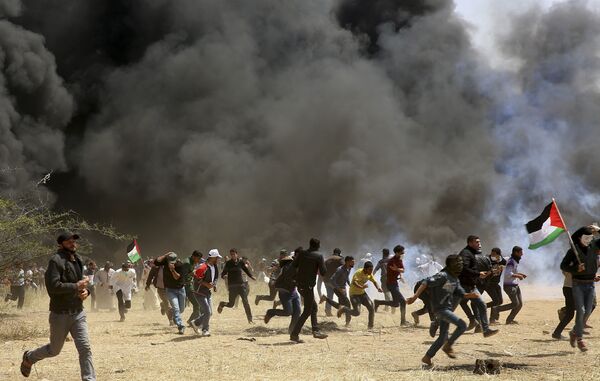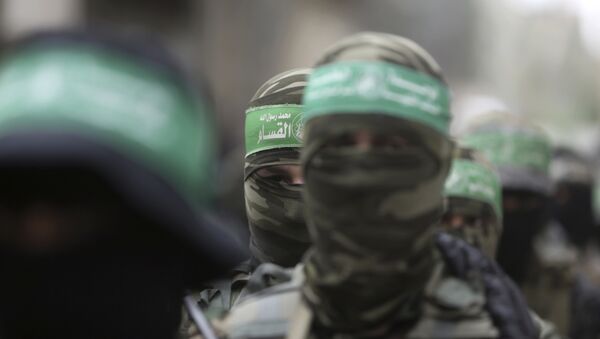Friday will see another wave of Palestinian protesters taking to the fence separating the Gaza Strip from Israel. According to Israel's estimates, thousands participate in the Friday demonstrations that kicked off in March 2018, demanding that Israel remove the siege and solve the Palestinian refugees problem.
Never Again
But Sameer Abu Ramzi, a 27-year-old Palestinian from Gaza, whose real name cannot be revealed for security reasons, says he will not be one of those participating in the protests.
"In the past I was an extremist and supported violence against the Israelis. But I am not there anymore", he confided over the phone.
In May 2011, Abu Ramzi, along with many others, took part in mass protests against Israel. Back then, amid the raging Arab Spring, protesters demanded the implementation of the UN Security Council's Resolution 242, calling on Israel to return to its pre-1967 borders and cease all hostilities.
"Back then I was willing to do everything, whether it was just to throw rocks at Israelis or die as a martyr for the sake of Palestine", Abu Ramzi recalls.
The Turning Point
But the turning point came in 2014, when Israel launched its Operation Protective Edge that attempted to curb the threat of Hamas and stop the group from digging military tunnels and launching rockets to hit Israeli cities - according to Israel's Ministry of Foreign Affairs. In the process, Israel has killed more than 2,000 people. Many were civilians, according to reports by the United Nations Office for the Coordination of Humanitarian Affairs.
"When I saw all the poverty and the death around me, I started asking myself whether this conflict - that I have been supporting for my entire life - was worth the suffering", said Abu Ramzi, pinning the blame on the mass media and the Palestinian education system.

In 2016, The Jerusalem Post, citing US experts who analysed Palestinian school textbooks in the West Bank and Gaza, reported that over 200 US-government approved books taught Palestinian children "to kill Israelis and sacrifice themselves as martyrs to drive Jews out of the country", the report said.
But Abu Ramzi points the finger of blame not only at the Palestinian leadership that breeds the conflict, but also towards some neighbouring states.
"I guess it is profitable for some Arab nations to keep this conflict alive, not because they care about the Palestinians, but because they want to divert attention from their own problems", he stated.
Now, however, Abu Ramzi says the situation is changing, with more and more people seeking something different. While he believes that most people will never say it openly - fearing persecution - behind closed doors many admit that they want to end the hostilities and normalise relations with Israel.
"Back in the 80's many Gazans commuted to Israel for work. For many, it was a golden era. Cooperation was great back then and many want to resurrect what we have lost. I believe it is possible and I am not the only one thinking this way", he concluded.



